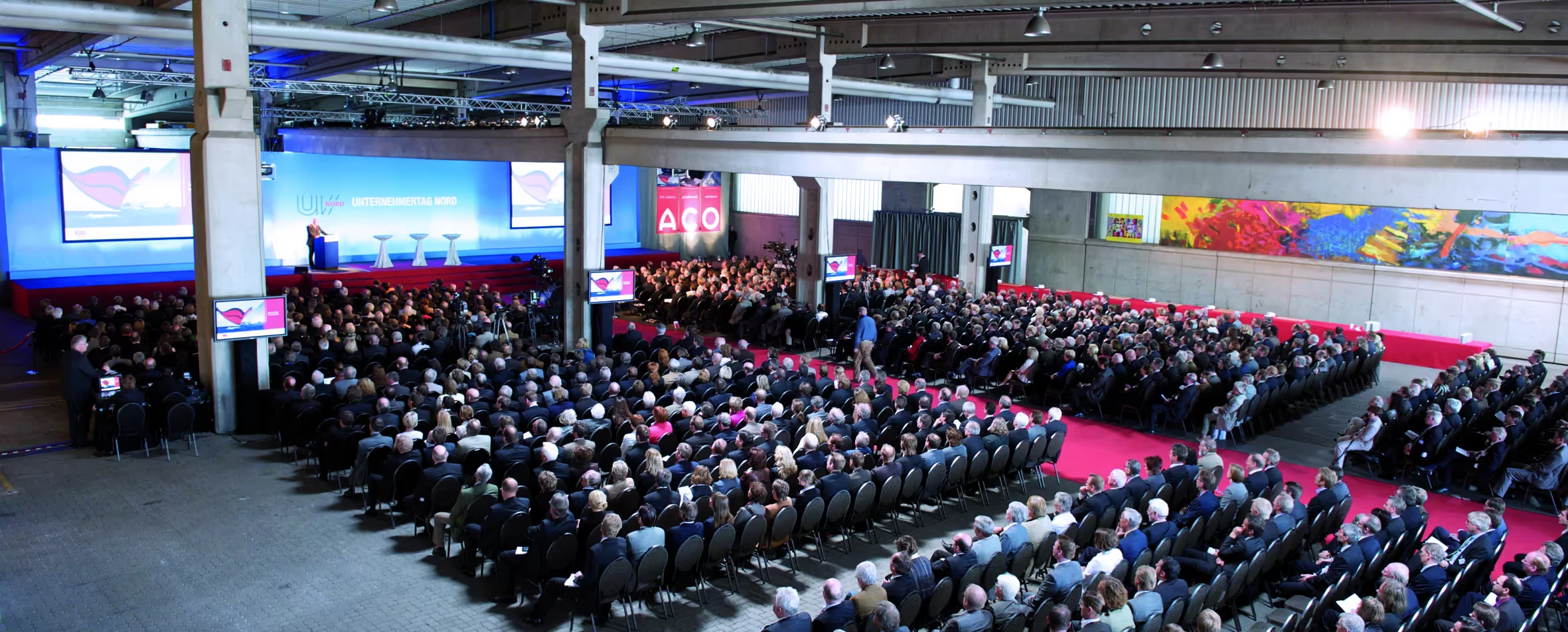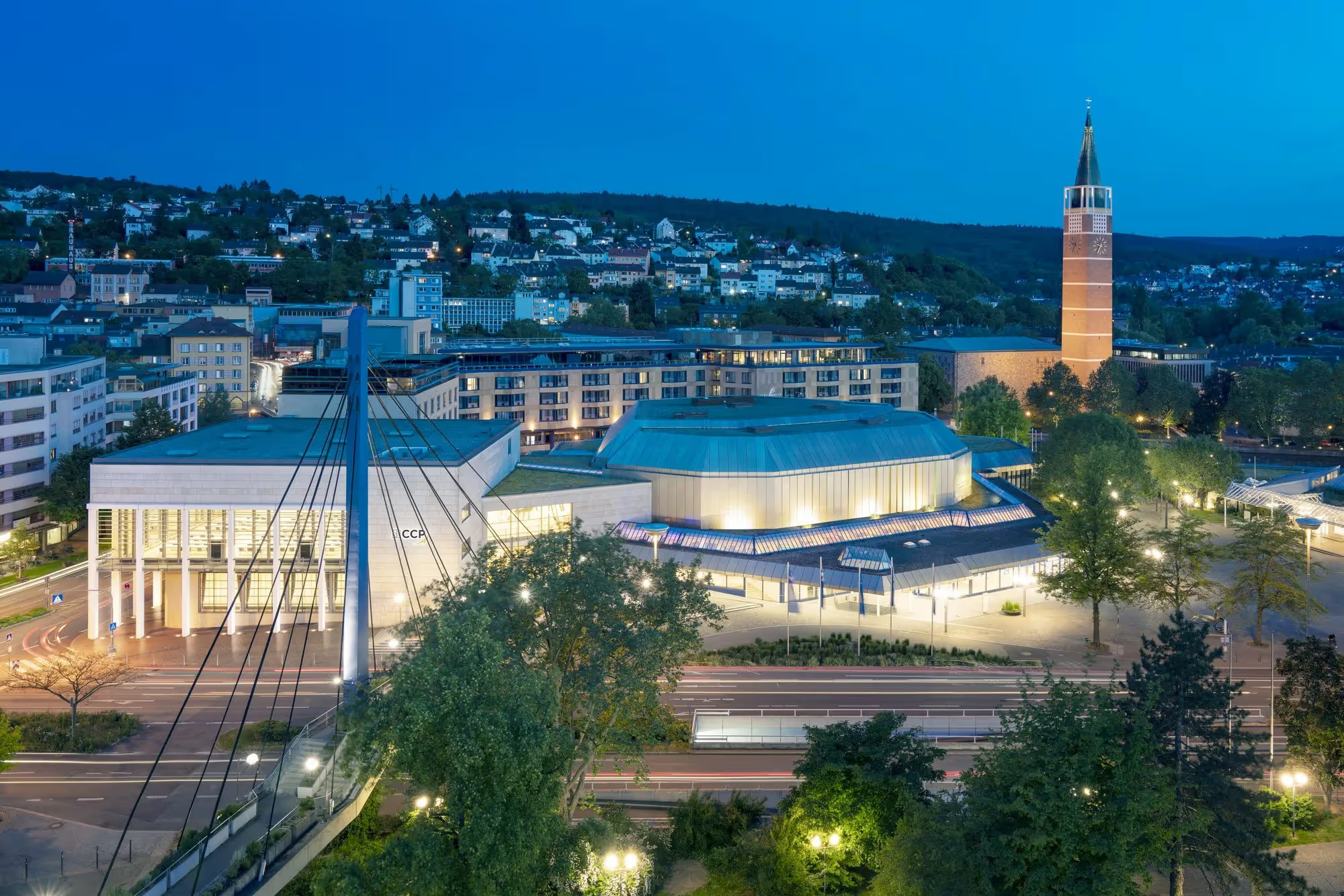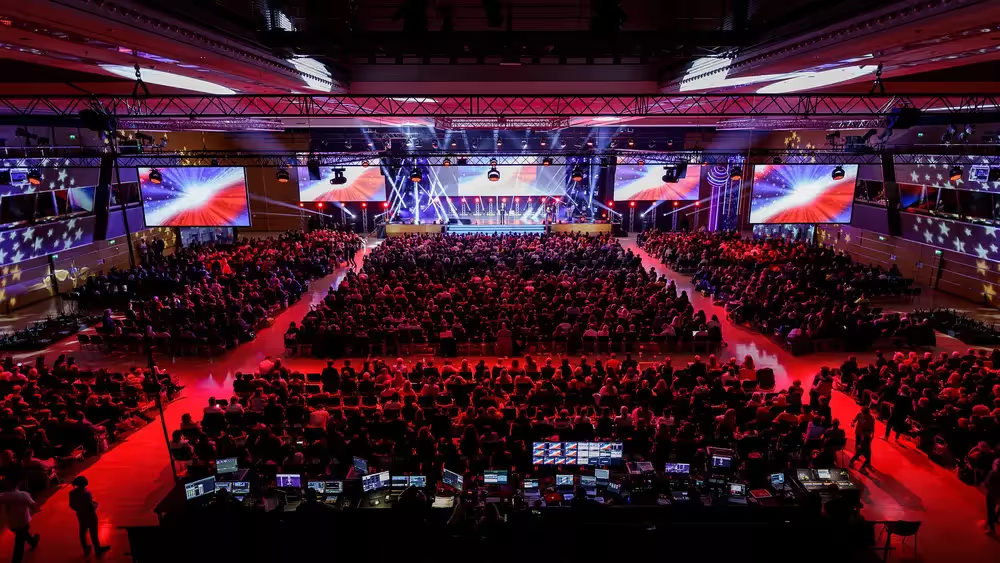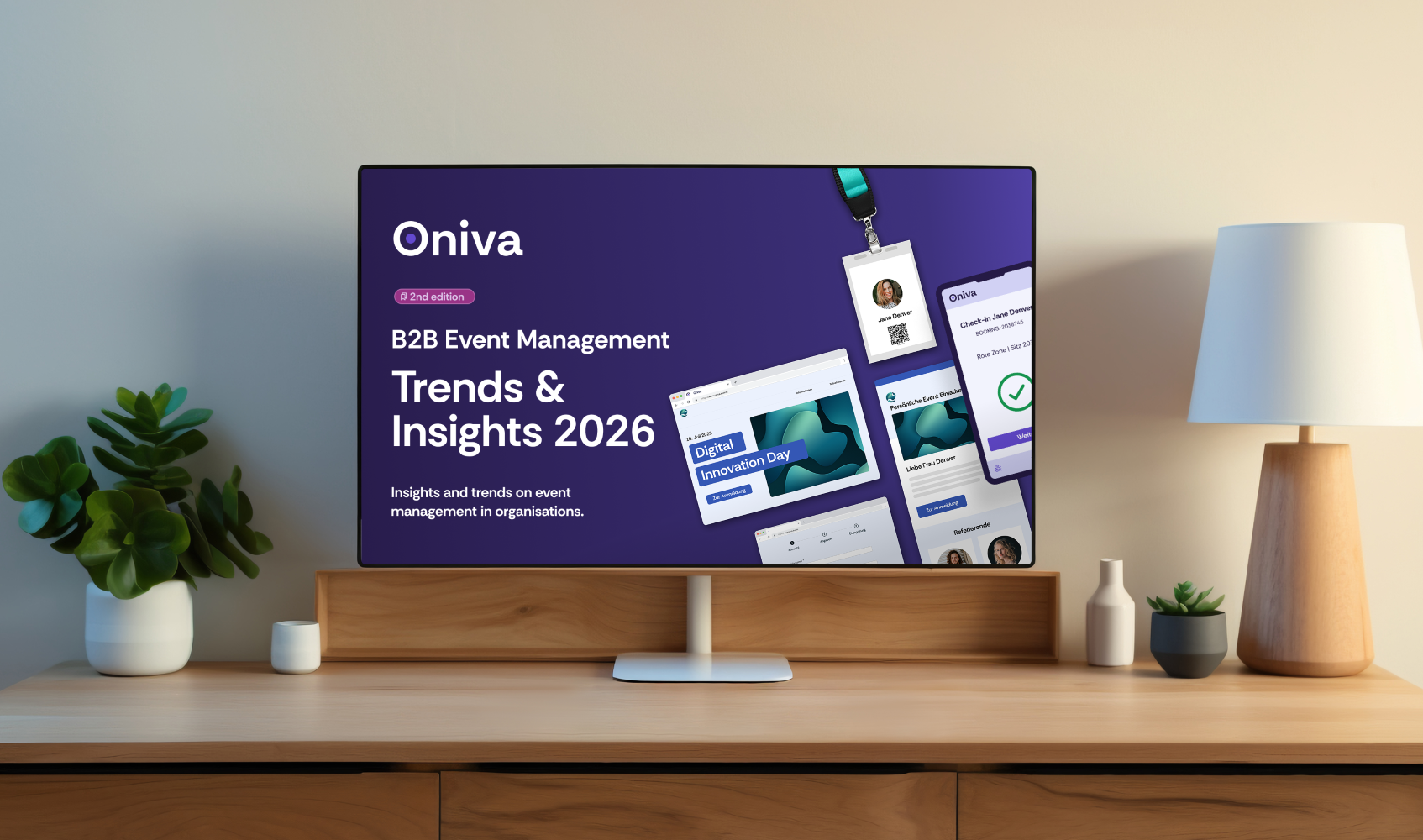Since the introduction of AI tools like ChatGPT, Midjourney and DALL·E, we’ve seen a massive shift in how content is created, how information is processed, and how decisions are made. Artificial intelligence not only boosts our productivity – it also changes the way we communicate, consume, and build trust.
But this development also has a downside: in a world full of generated texts, images and videos, it’s becoming increasingly difficult to distinguish real content from AI-created material. For organisations, this means the desire for authenticity is growing. And this is exactly where events come in.
This article explores why events are not losing relevance in the age of artificial intelligence – but gaining it.
How is AI changing the relationship between people and organisations?
Artificial intelligence creates new opportunities – but also new challenges in how organisations communicate with their audiences.
Here’s a brief look at three key changes:
- Content is becoming more Interchangeable
More and more content is being created automatically. This lowers costs but also leads to a kind of sameness in the information on offer.
- Trust is the new currency
It’s becoming harder to tell real content from artificial content. This can lead to scepticism and emotional distance from brands.
- Events as a response to the trust gap
That’s why real encounters are gaining importance: they enable genuine, direct interaction – and create authentic connection.
Looking back: how has the number of events developed?
Despite digitalisation and remote work, live events are on the rise. A look at the statistics shows that events have proven both resilient and relevant in recent years:
📊 According to Statista, around 2.6 million business events were held in the DACH region in 2023 – a clear increase compared to the pandemic years. In Germany alone, more than 412,000 events took place with over 336 million participants, according to the GCB Meeting & EventBarometer.
The event market is thriving – and will continue to do so. Especially business events are gaining new significance in times of remote work and AI as real spaces for interaction.
What role do events play for organisations today?
Events are more than just gatherings – they are strategic tools.
They support:
- authentic brand perception
- knowledge sharing and training
- customer retention and acquisition
- networking and team building
- employer branding
- and emotionally charged brand experiences
In the competition for attention and trust, successful organisations rely on events as a key channel for dialogue – whether physical, digital, or hybrid.
What does this mean for the event strategy of the future?
AI is influencing marketing – but also strengthening the desire for real moments. Personal contact and live interaction are becoming key differentiators.
Why events are becoming even more important in the AI age:
- People crave authenticity
The more digital tools we use, the stronger the desire for real experiences becomes.
- Events are emotional anchor points
Live experiences create lasting impressions – they’re hard to imitate and especially valuable in an increasingly digital world.
- Brands need a stage for encounters
Building trust today means showing up – personally, genuinely, and transparently.
What benefits do events offer organisations in practical terms?
These ten reasons show why events are an essential tool for modern organisations:
1. Direct customer contact
Events offer a unique opportunity to engage directly with customers. Unlike digital marketing methods, where personal interaction is often lacking, events enable real dialogue – strengthening relationships and trust.
2. Experiences leave lasting impressions
People remember experiences more than standard advertising messages. A well-planned event leaves a lasting impression on participants and has a long-term positive impact on the brand. An event tool can support the creation of these experiences even more effectively.
3. Building and maintaining networks
Events are ideal platforms for expanding networks and maintaining relationships. For event managers, they offer a great chance to forge valuable connections for the organisation – and for themselves.
4. Targeted communication
With careful event planning, content can be tailored specifically to the needs of the audience – enabling targeted communication that often gets lost in other marketing formats.
5. Immediate feedback
One major advantage of events is the ability to gather real-time feedback from participants. This makes it easier to respond to customer needs and expectations and adapt planning accordingly.
6. Strong brand loyalty
Through direct interaction and emotional experience, events foster deep brand loyalty. Customers who have had a positive event experience are more likely to remain loyal to the brand.
7. Creative potential
Events offer plenty of room for creativity – from the choice of venue and the programme to guest engagement. A modern event tool supports event managers in bringing ideas to life smoothly and effectively.
8. Multi-sensory engagement
Unlike purely digital channels, events appeal to multiple senses at once. The combination of visual, auditory and tactile elements ensures messages are received more intensely and remembered more vividly.
9. Wider reach
A well-executed event not only attracts those physically present, but – through social media and digital tools – can also reach a much larger audience. Livestreams, event hashtags and attendees sharing their experience all significantly boost brand visibility.
10. Long-term impact
The positive impressions and experiences gathered at an event shape how a brand is perceived long after it ends. Events leave a mark – and ensure the brand remains memorable.
Conclusion: in the age of AI, events are more relevant than ever
Artificial intelligence is changing how we communicate. But it cannot replace real encounters. Precisely because so much content is now generated automatically, events are taking on new emotional and strategic value. They’re what make brands feel human, tangible, and authentic again.
Organisations that want to build and maintain trust need events – as a stage, a meeting space, and a tool for building relationships.
Bonus: how to develop your event strategy for the future
An event strategy is more than just a calendar of dates – it’s part of your brand strategy. Consider the following questions:
- What are your objectives for events?
(e.g. increasing awareness, retaining customers, sharing knowledge)
- Who are your target groups?
(Customers, partners, employees, media)
- Which formats suit which audience?
(Workshops, trade fairs, hybrid conferences, community events)
- What unique experiences can you create?
(e.g. interactive elements, special venues, creative settings, personalised content, surprising moments)
- How can you increase efficiency in execution – for example, with an event tool like Oniva
(a holistic event management platform for organisations)



















.svg)















































































